14 Best Vegetables to Grow in the Winter (With Pictures)
-
Kristin Hitchcock
- Last updated:
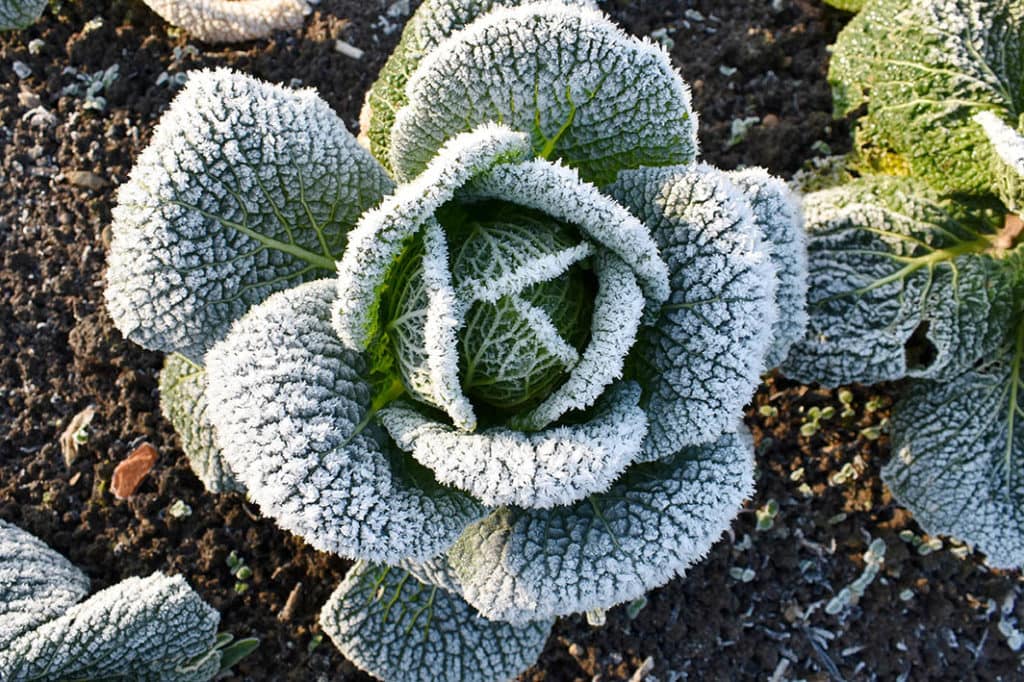
Most people associate garden vegetables with spring and summer. However, there are quite a few vegetables that can be grown in the colder months of winter. In fact, some veggies thrive in colder weather when bugs are nonexistent.
With that said, the main factor for winter gardening is the number of hours of sunlight the plants receive, since it will be far less than summer gardening. You can address temperature with greenhouses and row cover, but you can’t change the number of hours the sun is out. Some winter veggies will need routine protection but still thrive in the winter otherwise.
On top of crops to gather at the beginning of winter, you can also overwinter crops, which generally means allowing them to go dormant so you can harvest them in early spring. You’ll want these crops to enter winter almost grown, go dormant thanks to the cold, and then finish growing in early spring.
While different winter crops need different care, they do all share the fact that they can survive the bitter cold. Here is a list of the best winter crops:
The 14 Best Vegetables to Grow in Winter
1. Beets
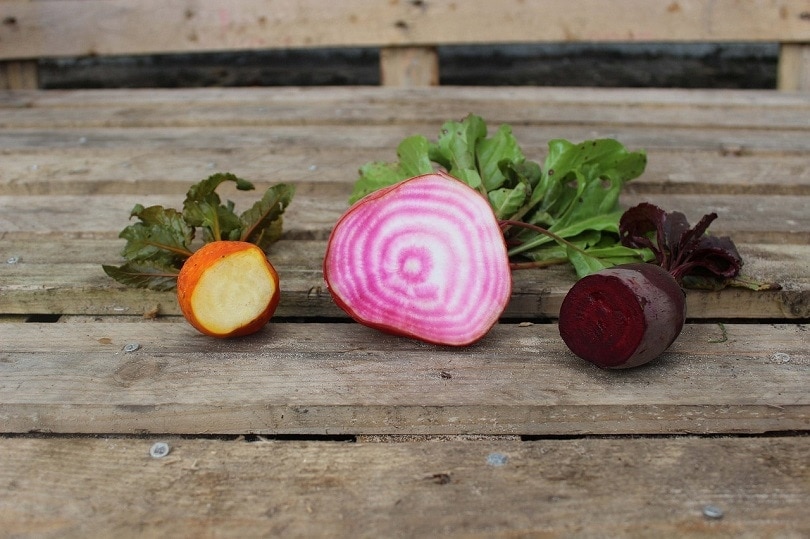
Beets are vitamin-rich vegetables that can potentially stay in the ground all winter, as long as you mulch them when the cold comes. You can harvest them as baby greens in the late winter, or allow them to overwinter and harvest them later. Either way, they’re a great option for winter harvests.
2. Broad Beans
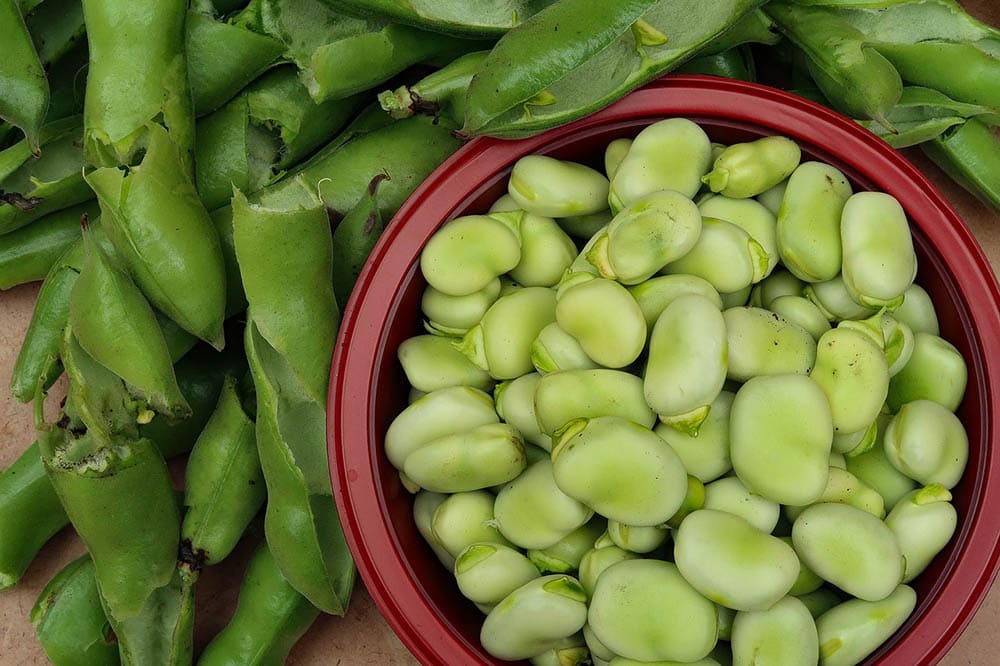
As slow-growing veggies, these are usually a great fit for winter gardening. In fact, they will grow through the winter months in most areas without much of an issue. Simply stake them if your area has a lot of snow. Otherwise, you can usually harvest them in early spring.
3. Garlic
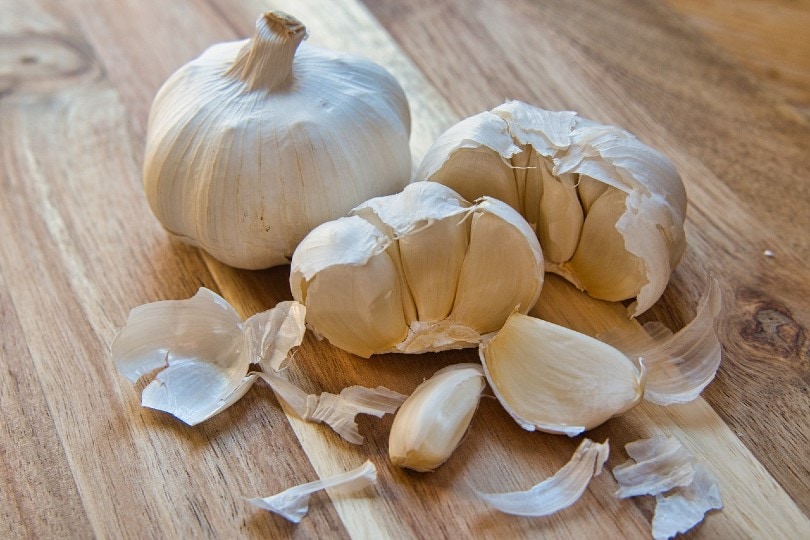
Known as one of the easiest crops to grow, garlic can be planted in the fall and harvested in the middle of the summer. They do require some protection, though. You’ll need to add lots of mulch to protect them from colder temperatures.
4. Cabbage

When most people think of winter crops, they usually think of cabbage. This reliable plant comes in many different types, so you’ll need to choose cold-weather varieties for planting in the winter. You may need to protect them from pests with floating row covers since many winter creatures love to snack on them. Occasionally, you’ll need to prompt growth by adding some compost.
5. Carrots

The best thing about carrots is that they can survive the winter cold. However, they don’t really grow through the winter months. Therefore, you want to go into winter with them almost all the way grown, but then you can harvest slowly to make the carrots last. Just protect them from winter pests. Otherwise, they’ll live in the colder soil for many months.
6. Kale

Of all the plants on this list, kale is one of the easiest plants to grow during colder weather. In fact, kale that is grown in colder temperatures actually tastes better than other types of kale. While this plant isn’t typically bothered by the cold, it will need to be protected from heavy snowfall to prevent breakage.
7. Onions
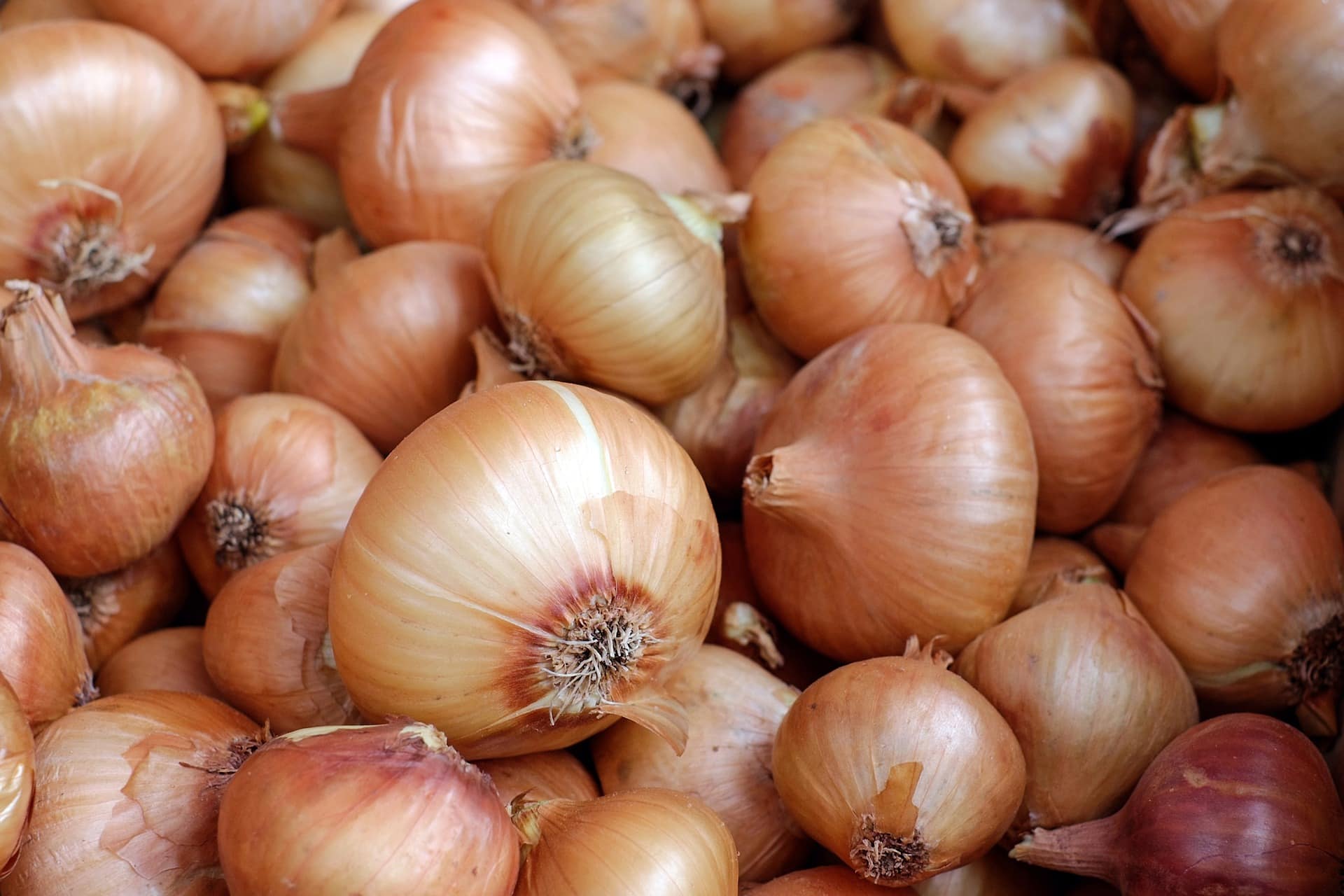
There are some varieties of onions that are designed for overwintering. These varieties are easy to plant and care for through the winter months. They typically go dormant, but then begin growing again in the later winter months.
You will need to protect them with mulch or row covers if the temperature gets exceedingly cold.
8. Peas
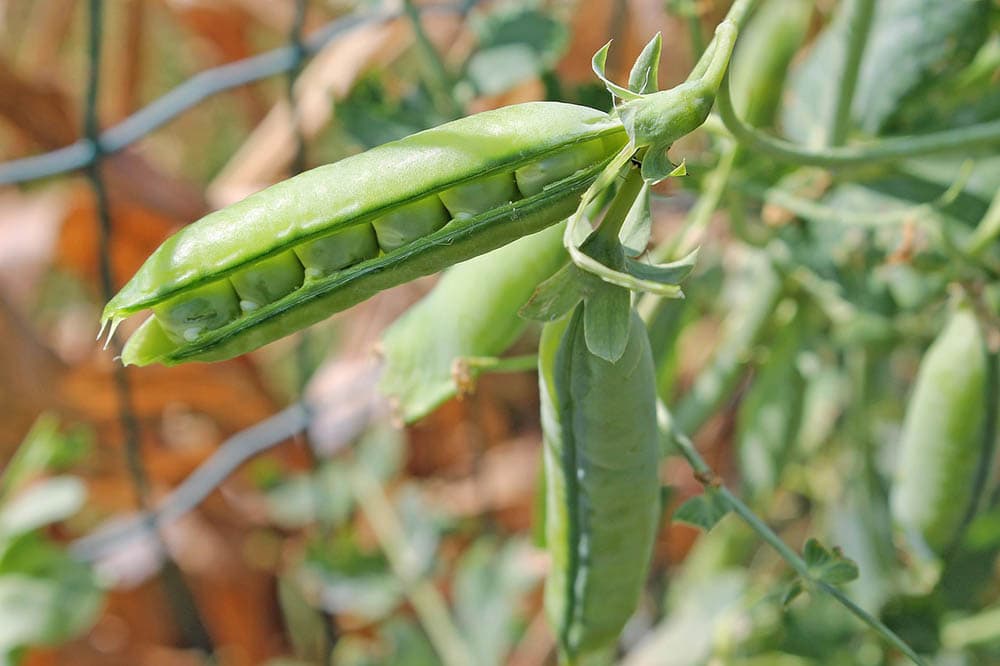
Peas will overwinter with some protection and then begin growing again in the spring—but only if you live in a warmer area. There are many varieties of peas that are suitable for winter harvesting. You’ll want to grow peas and then harvest them before the first frost. Or, you can extend the harvest into winter by providing them with some protection.
9. Lettuce
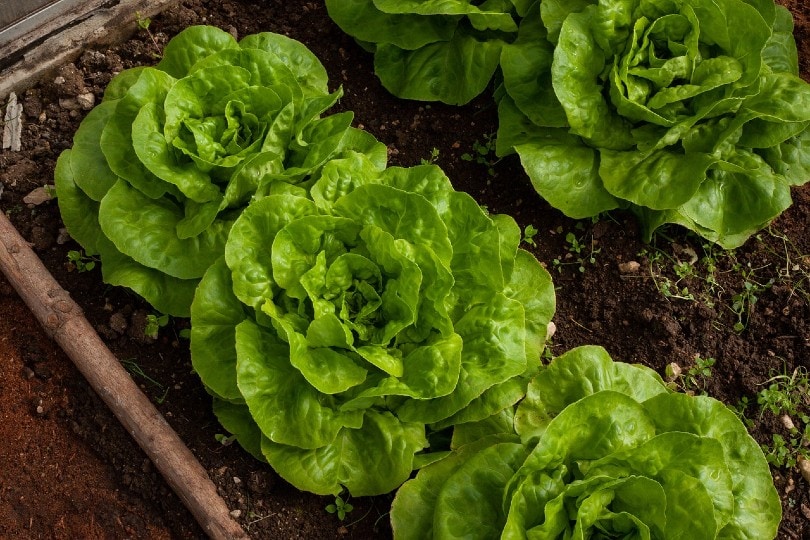
There are many varieties of lettuce that you can grow in the winter. Not all varieties thrive into the colder months, but there are some varieties that were specifically bred for the colder season. Some of these varieties need some sort of ground cover, while others do not. Be sure to research the variety you purchase before making your final decision.
10. Asian Greens
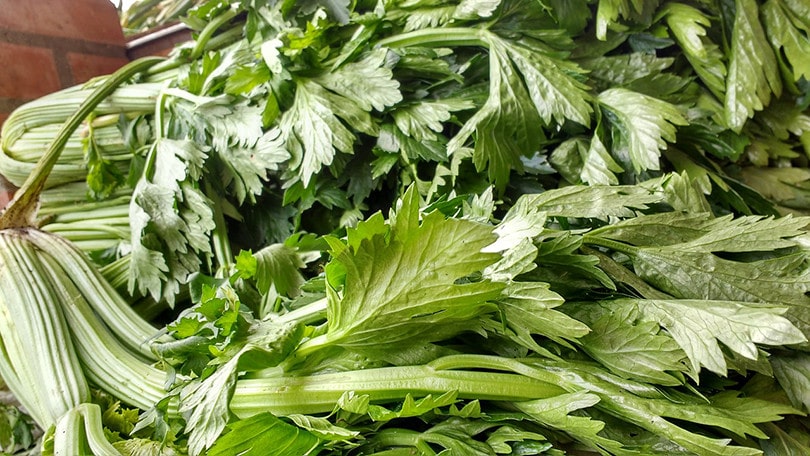
While they aren’t as popular as other crops, Asian greens are one of the easiest veggies to grow in colder weather. They come in many different varieties, allowing you to grow different ones throughout the year. They tend to grow very quickly and come in many different textures and flavors. Many can be directly planted throughout the winter for fresh greens in the colder months.
11. Scallions
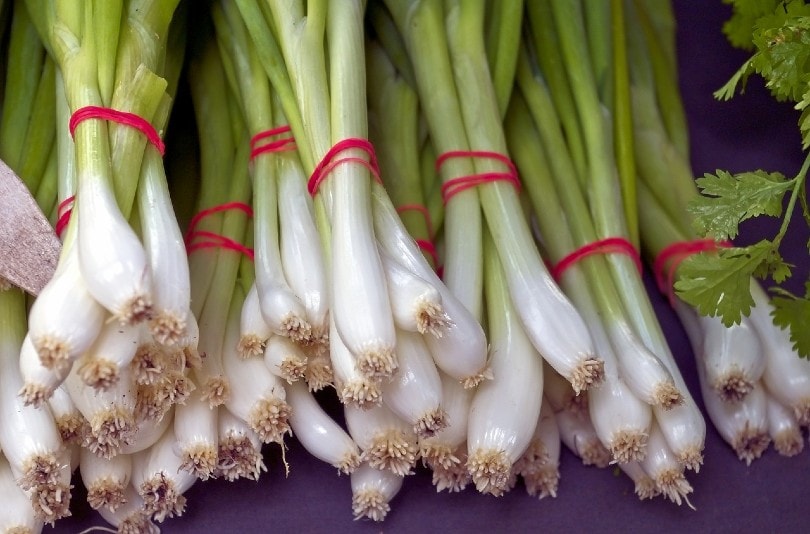
Some varieties of scallions can grow in colder climates. You can plant them on frames or in tunnels, where they have some protection from the outside weather. Some are hardier than others, so be sure to carefully research the varieties that thrive in your area before planting. In the best-case scenario, you should be able to plant them all winter long.
12. Mache

You can directly seed Mache in late summer and then enjoy a harvest in the winter. These plants allow you to enjoy fresh greens throughout the winter. They are extremely easy to harvest and plant, plus, they self-sow so you will continue to get Mache in your garden unless you’re sure to pull all of the plants.
13. Spinach
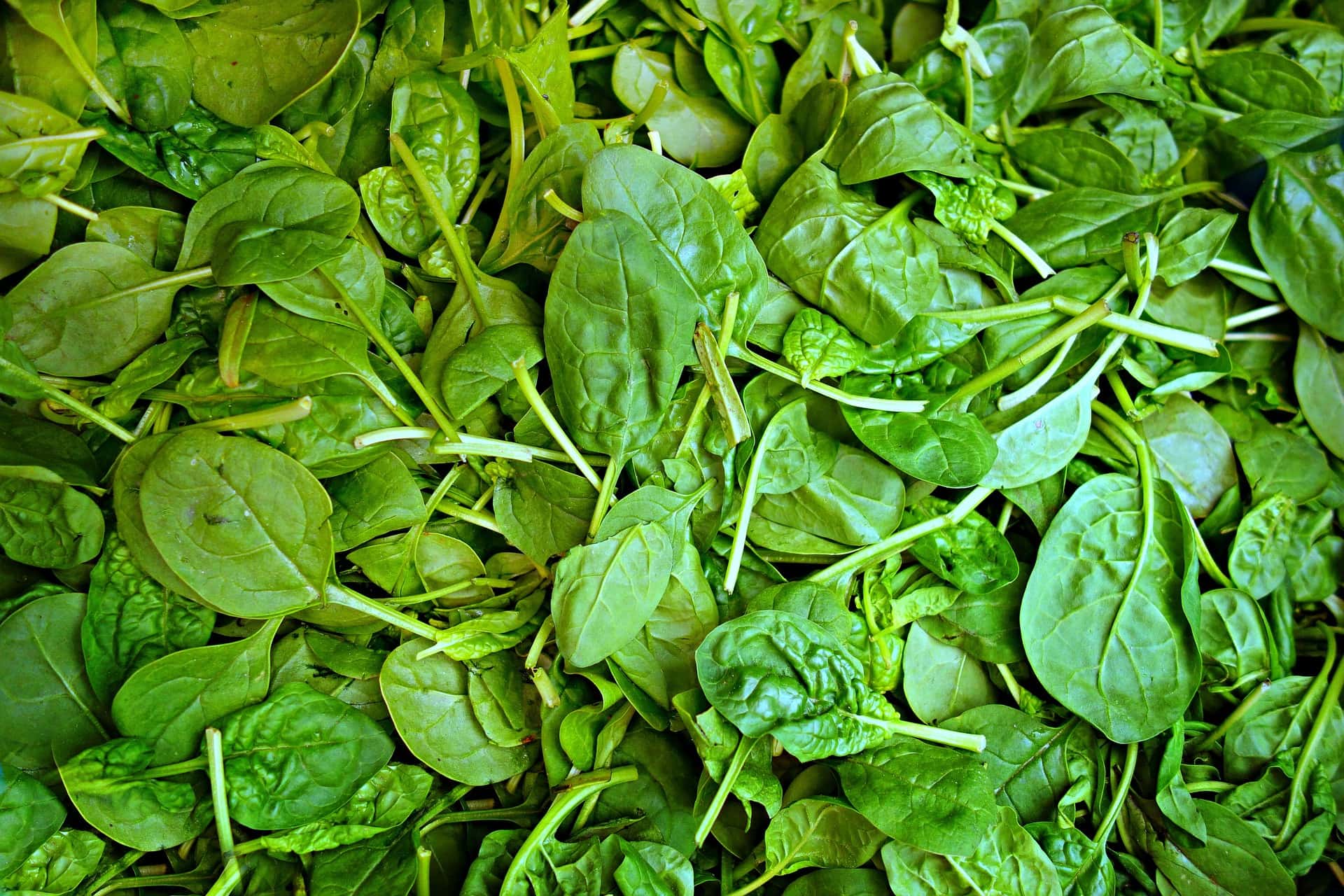
Spinach is known to thrive in colder temperatures. You can seed them directly outside during autumn and allow them to grow into the winter. You will need to cover the beds as the colder weather arrives, but they grow just fine in the colder temperatures otherwise.
Of course, only certain varieties are best for winter planting, so be sure to purchase a type that was made for winter harvesting.
14. Arugula

Arugula has two main types that can be harvested in the winter. Garden varieties tend to grow faster and are what most people know as arugula. However, wild varieties also exist that are a bit hardier and more cold tolerant. Plus, they also have a more robust flavor so you’ll likely want to choose the wild options when possible.
You want this leafy green to be mostly ready to eat in October. Then, you can extend the harvest until you run out.
Related Read: Can You Compost In The Winter? Are There Restrictions?
Conclusion
While most people do not garden in the winter, there are many different crops that can be planted in the colder months. Usually, leafy greens fall into this category. However, there are many root veggies that thrive in the colder months as well.
While some of these plants grow through the winter, others are just tolerant of the cold. However, with the right protection, you can extend the harvest on many different plants, allowing you to enjoy fresh plants throughout the winter.
Most of the veggies we’ve mentioned need certain varieties to be planted if they are to survive the colder weather. Therefore, we recommend doing plenty of research into the varieties that grow best in your area, as it will differ from place to place.
Featured Image Credit: Amanda J Jackson, Shutterstock
Contents
